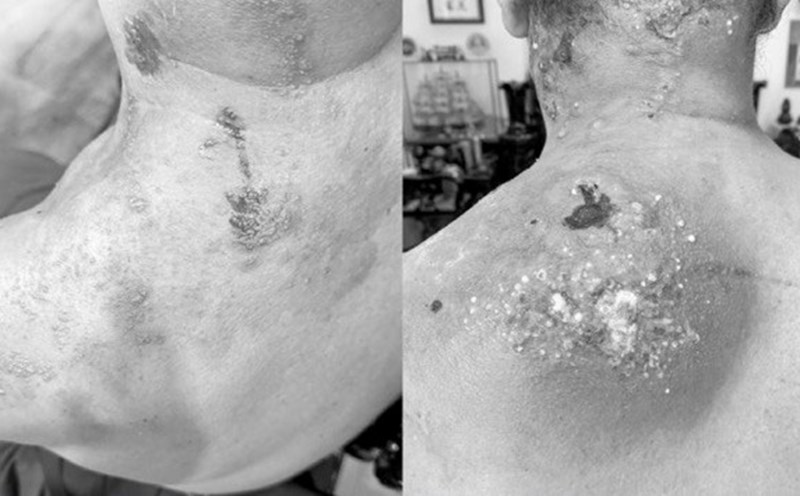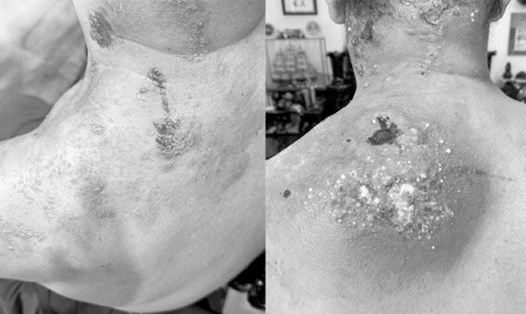Vitamin B12 deficiency causes gum pain
According to Dr. Preeti Nagar, Nutritionist at NIIMS Medical College and Hospital (India), said: “Vitamin B12 deficiency can seriously affect gum health. Vitamin B12 is needed to repair and maintain tissues, including gums, as well as support healthy blood cells. When vitamin B12 is deficient, gums become weak, prone to inflammation and infection, increasing the risk of periodontitis - a gum disease that can lead to receding gums and tooth loss.”
Additionally, vitamin B12 deficiency also reduces the amount of oxygen supplied to the gums, slowing the healing process, leading to red, swollen, bleeding gums and mouth ulcers. Therefore, ensuring adequate vitamin B12 intake through diet or supplementation is important to maintain healthy gums.
Reduced cell regeneration: Vitamin B12 plays an important role in the production and regeneration of cells, including gum tissue cells. When vitamin B12 is deficient, this process is impaired, which can lead to inflammation and gum pain.
Increased risk of gingivitis: Vitamin B12 deficiency weakens the immune system, making it harder for the body to fight bacteria in the mouth. This can lead to gingivitis, one of the causes of painful gums.
Nerve dysfunction: Vitamin B12 is important for the functioning of the nervous system. Vitamin B12 deficiency can cause numbness or pain, which can be felt most clearly in the gums.
Improves blood circulation: Vitamin B12 helps maintain healthy blood vessels. A deficiency in this vitamin can lead to poor blood circulation, which can cause poor nutrition to the gums, making them susceptible to inflammation and pain.
How to reduce vitamin B12 deficiency
Supplementing foods rich in vitamin B12 is an effective way to overcome this vitamin deficiency.
Non-vegetarians can consume lean red meat, chicken, fish, seafood, eggs, and beef liver to supplement vitamin B12.
Vegans can use dairy products such as milk and yogurt as sources of vitamin B12.
Vegan diets are often deficient in vitamin B12 due to the avoidance of dairy products. Vegans can supplement vitamin B12 through fortified cereals, vegan milk alternatives, or B12 supplements to reduce the risk of deficiency.










